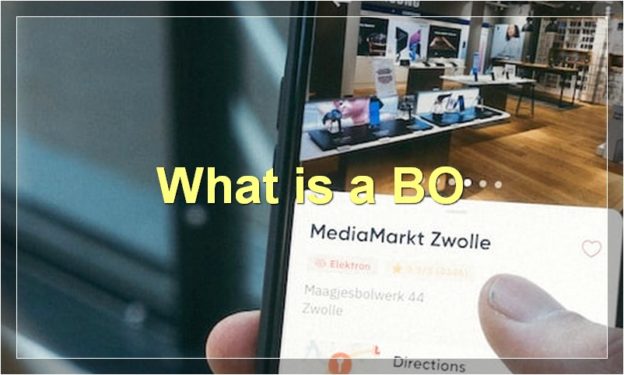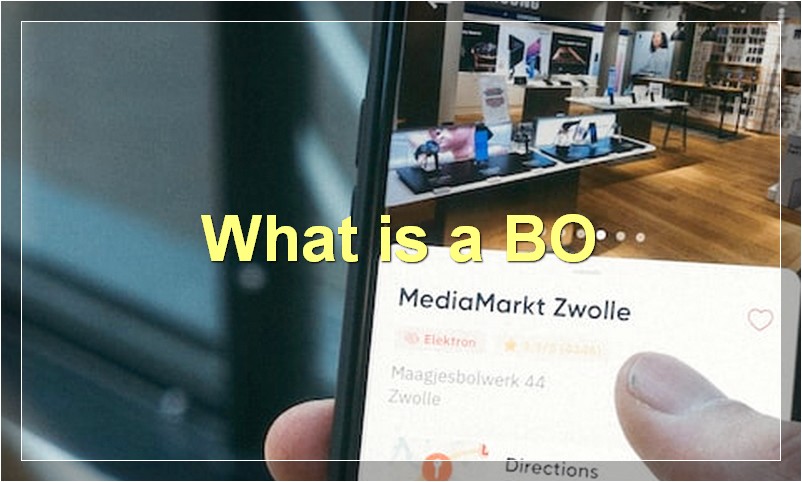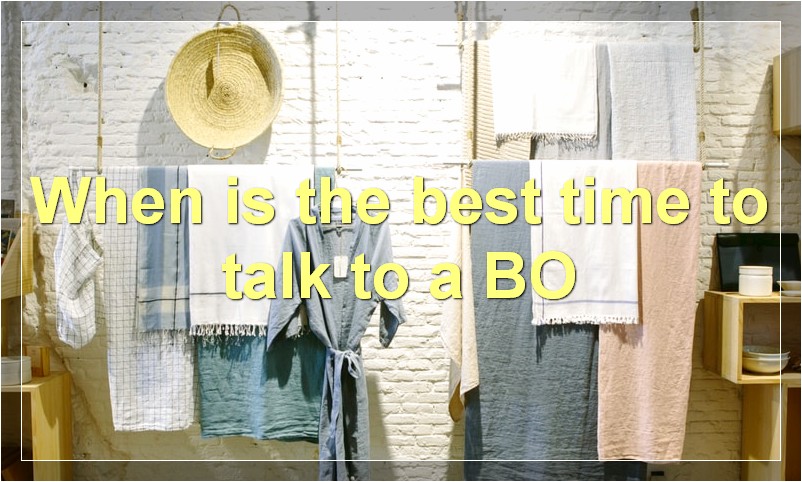If you’re like most people, the thought of talking to your boss’s boss (BO) makes you break into a cold sweat. But it doesn’t have to be that way! With a little preparation, you can confidently approach any BO and get the conversation started. Here’s how:
How do I talk to a BO
There’s no need to be intimidated by the BO, or “Big Other.” In fact, talking to them can be easy and even enjoyable, if you keep a few things in mind. First, remember that they’re just people too. They want to be respected and treated like any other person. Secondly, it’s important to be clear and concise when communicating with them. Be direct and honest about what you want and why you want it. Lastly, don’t forget to show appreciation for their time and attention. Thank them for listening to you and considering your request. With these tips in mind, you’ll be able to approach the BO confidently and have a productive conversation.
What is a BO
If you’re a business owner, chances are you’ve heard of the term “BO.” But what is a BO?
A BO is short for “business owner.” A business owner is someone who owns and operates a business. They’re responsible for all aspects of the business, from its day-to-day operations to its long-term strategic planning.
Being a business owner comes with a lot of responsibility. But it also comes with a lot of rewards. As a business owner, you have the freedom to make your own decisions, set your own hours, and reap the profits of your hard work.
If you’re thinking about starting your own business, or if you already own a business, understanding what a BO is and what they do is important. It can help you make better decisions for your business and set yourself up for success.
Who is a BO
In business, a BO is short for “business owner.” A BO is someone who owns a business, whether it’s a sole proprietorship, partnership, or corporation. The BO is the person responsible for the day-to-day operations of the business, as well as its long-term planning and strategy.
A BO typically wears many hats and has a lot of responsibility. They may be responsible for managing employees, handling finances, marketing the business, and more. Because of all this responsibility, a BO needs to be organized, detail-oriented, and good at multitasking. They also need to be able to delegate tasks and trust their employees to get the job done.
A BO is the driving force behind a business. They are the ones who make things happen and ensure that the business is moving in the right direction. Without a strong and capable BO, a business is likely to flounder.
What does a BO do
A BO, or business owner, is responsible for the overall operation of a business. They create the company’s policies, procedures, and goals, and make sure they are carried out. The BO also hires and manages employees, oversees finances, and handles marketing and sales.
How can I improve my talking to BOs skills
If you’re looking to improve your skills in talking to business owners, here are a few tips:
1. Do your research. When you’re meeting with a business owner, it’s important that you know about their company and their industry. This way, you can ask informed questions and demonstrate that you’re truly interested in their business.
2. Ask questions. Asking questions is a great way to start a conversation and get to know the business owner. Show genuine interest in their business and try to learn as much as you can about what they do.
3. Be prepared. When you’re meeting with a business owner, it’s important that you have an agenda and some specific goals in mind. Know what you want to achieve from the meeting, and come prepared with questions and ideas.
4. Listen more than you talk. In any conversation, it’s important to listen more than you talk. This is especially true when talking to a business owner. Let them do most of the talking, and really listen to what they have to say. You’ll learn more and make a better impression if you let them do most of the talking.
5. Follow up. After your meeting, be sure to follow up with the business owner. Send them a thank-you note or email, and keep in touch. If you build a good relationship with them, they’ll be more likely to do business with you in the future.
When is the best time to talk to a BO
The best time to talk to a BO is when you are both relaxed and comfortable. This could be after a long day at work, or on the weekend. You want to make sure that you are both in a good mood and have plenty of time to talk.
What should I say to a BO
There is no one definitive answer to this question. However, some possible things you could say to a BO include expressing your interest in the position or company, discussing your qualifications, or asking questions about the role or company. Whatever you do, be sure to remain professional and courteous throughout the conversation.
How often should I talk to a BO
There is no set frequency for how often you should talk to a BO. However, it is generally advisable to touch base on a regular basis in order to keep them updated on your progress and to ensure that they are still invested in your success. Additionally, it is important to be proactive in seeking out their advice and guidance – don’t wait for them to come to you. By keeping the lines of communication open, you will foster a stronger relationship with your BO which can only benefit you in the long run.
What shouldn’t I say to a BO
There are a few things that you should avoid saying to someone with BO, as it can be quite offensive. Here are a few examples:
“You stink!”
“Ew, your BO is gross!”
“What’s that smell? Oh, it’s just you.”
What are some common mistakes people make when talking to BOs
There are several common mistakes that people make when talking to BOs. First, they assume that BOs are always busy and don’t have time to talk. Second, they try to sell the BOs on their products or services without first establishing a relationship. Third, they get too personal or pushy, which can turn the BOs off. Finally, they fail to follow up after the initial conversation, which shows lack of interest.



